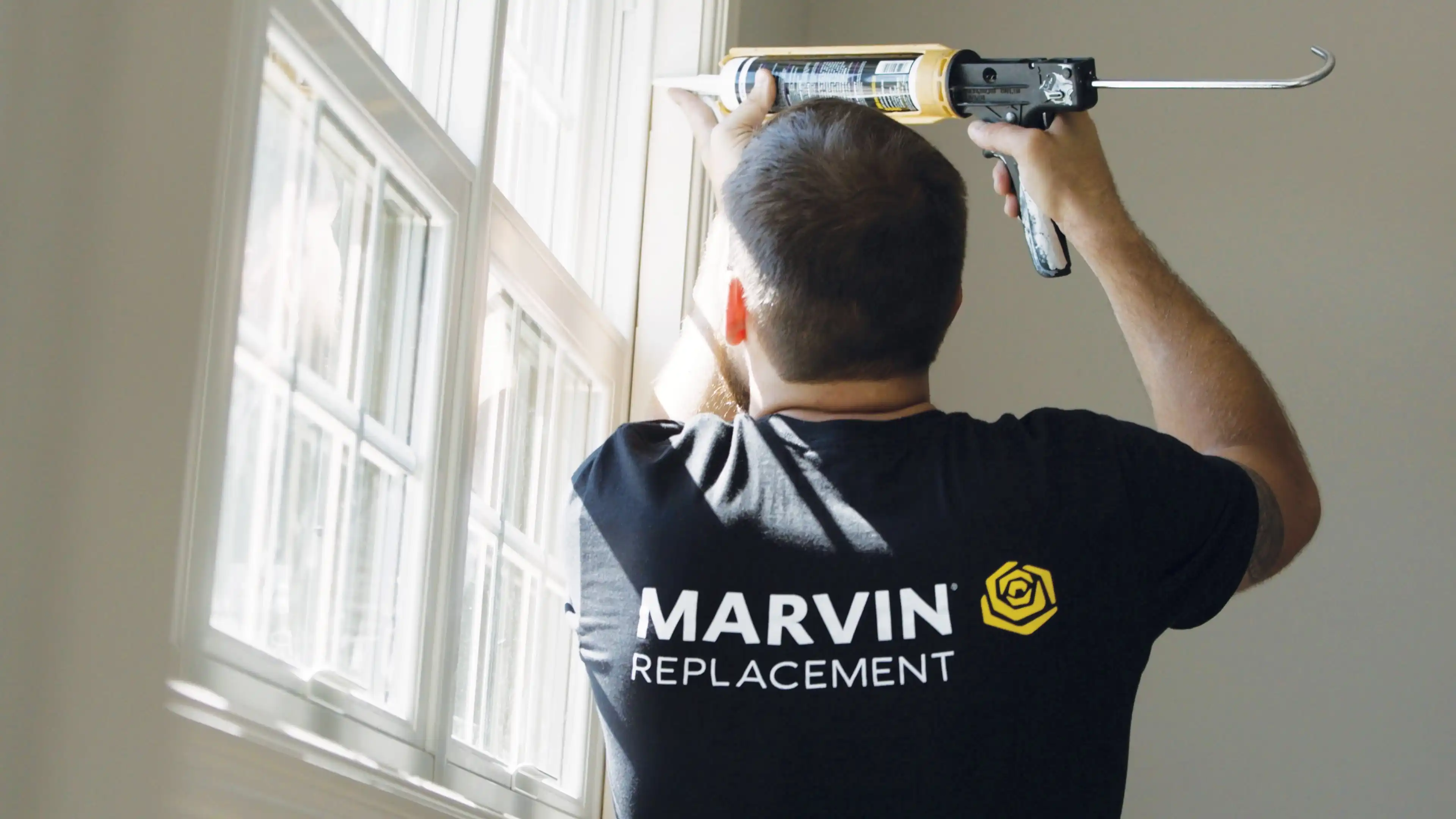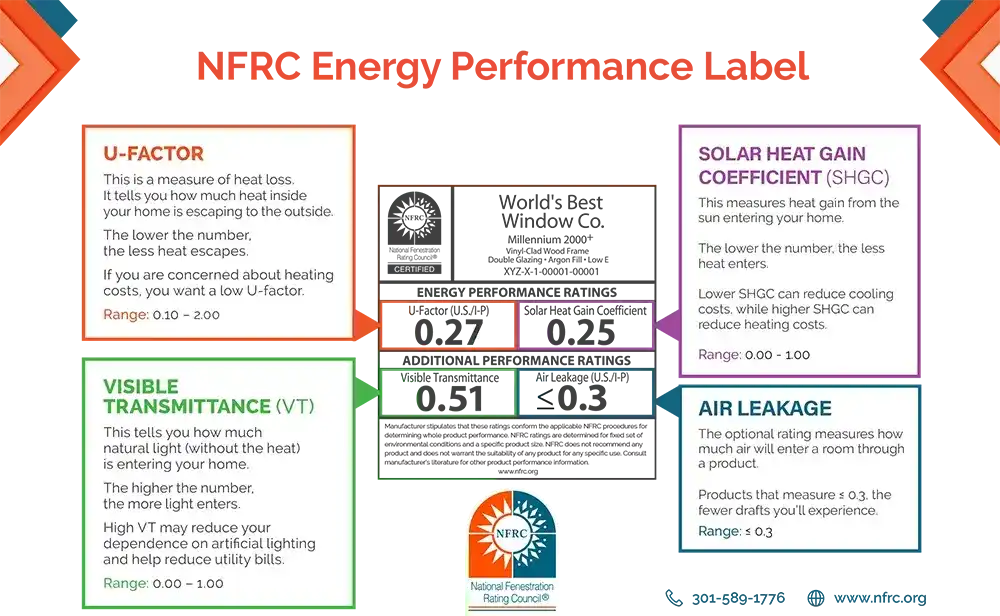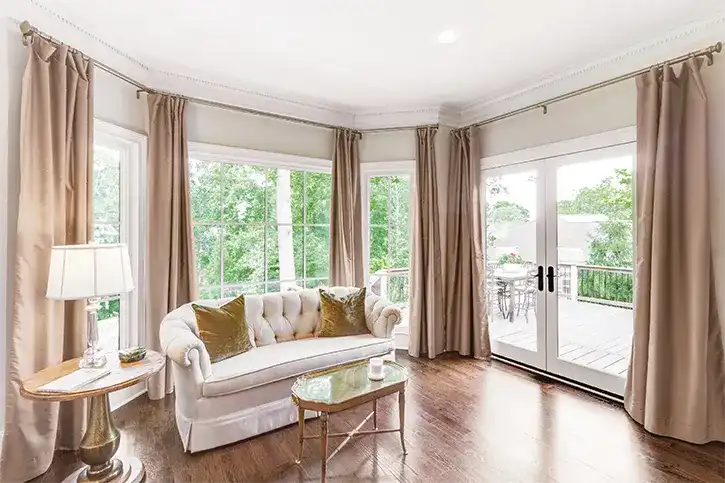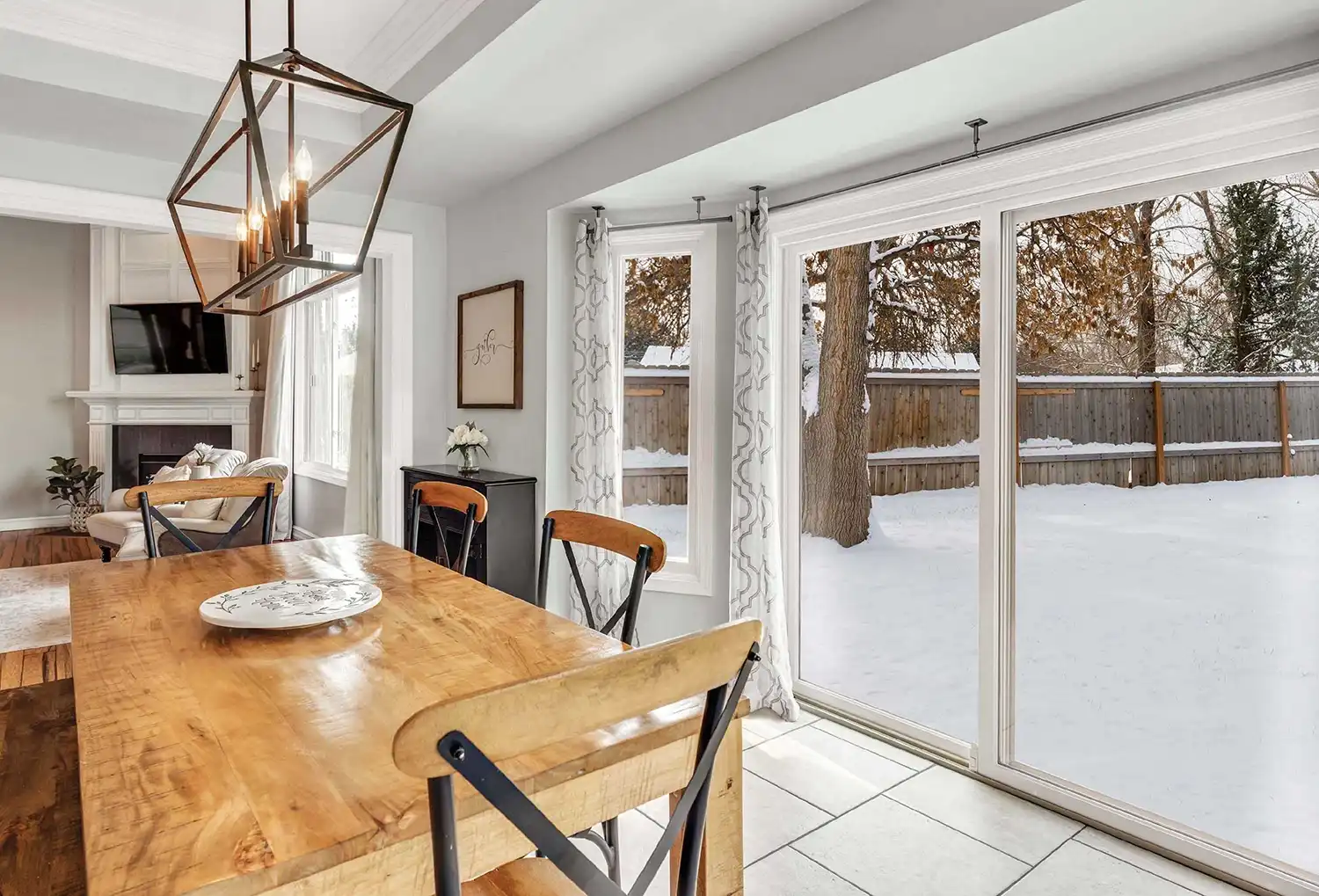
How to Find the Best Energy Efficient Windows
Your windows and patio doors can help make your home more energy efficient. Here’s what to know when looking for energy efficient windows.
Energy Efficient Replacement Windows
The best energy efficient replacement windows have two or more glass panes. They also have an insulating gas fill and low emissivity coatings (Low-E). Energy efficient windows get made with material that reduces heat transfer, too.
Most windows manufactured today feature two panes of glass. In the past homes used single-pane windows. Double-paned windows are more energy efficient than single-pane windows. Double-pane windows also feature a gas fill between the panes for energy efficiency. A non-toxic, inert gas, like argon is typically used for a gas fill. Argon has a greater density than air and reduces heat transfer.
Windows with Low-E glass coatings have thin metallic coatings to reflect heat. Different coatings work well in different climates. The best windows for hot weather have coatings that block solar heat. The best windows for cold weather allow more heat to enter a room. Marvin Replacement has four low-E coating options (Low E1, Low E2, Low E3, and Low E3/ERS). One of the options can meet the needs of your climate zone.
Different window materials have better energy efficiency than others. Marvin Replacement’s Ultrex® fiberglass insulates better than aluminum. Ultrex helps reduce heat transfer.
What are the Most Energy Efficient Windows?
An easy way to find the most energy efficient windows is to look for windows with the ENERGY STAR® logo. ENERGY STAR-certified windows have met ENERGY STAR standards for energy efficiency.

A National Fenestration Rating Council (NFRC) window label explains the energy efficiency of a window. A NFRC label helps you compare energy-efficient products. It displays things like:
U-factor
Solar Heat Gain Coefficient (SHGC)
Visible Transmittance (VT)
Air Leakage
U-factors range from 0.10 to 2.00. Higher U-factor numbers allow more heat to escape. SHGC numbers range from 0.00 to 1.00. Those in warmer climates will want windows with a lower SHGC number. Air leakage rates of ≤ 0.3 mean fewer drafts. ENERGY STAR has a climate zone finder tool with U-factor and SHGC number suggestions.
Energy Efficient Windows Benefits
Save Money: Replacing energy inefficient windows with new energy efficient windows can save you money.* Energy efficient windows help your home keep heat in cooler months. They also prevent heat from entering during warmer months.
Protect from UV Rays: The type of window glass you choose can help protect items in your home from color fade. Low-E glass helps block UV rays, which can damage furniture color.
Feel Comfortable: One of the signs to replace windows is when you start to notice drafts. Upgrading to energy efficient windows is one of the best ways to reduce energy loss with windows.
How Much Can You Save with Energy Efficient Windows?
The NFRC estimates the average American household spends $1,500-$2,500 annually on energy bills. About 45% of that goes toward heating and cooling costs.
The U.S. Department of Energy (DOE) estimates a homeowner can save between $493 and $568 a year on average, if they’re replacing single pane windows with ENERGY STAR-certified windows. For double pane windows, those savings range between $253 and $373.*
FAQs
Which is more energy-efficient single-hung or double-hung windows?
The difference between single hung windows vs. double hung windows is only one sash moves in a single hung window. That means fewer paths for air leakage. Both types of windows seal tightly and are energy efficient.
Why is energy efficiency important?
Energy efficiency means using less energy to perform the same function. An easy example is energy efficient lightbulbs. An energy efficient lightbulb will still light a room but use less energy to do so. Energy efficiency is not the same as energy conservation. Energy conservation means reducing a good or service to save energy. Using the lightbulb example, turning off a light is energy conservation.
*Savings reflects installing ENERGY STAR certified products compared to non-certified when replacing single pane windows based on the average savings among homes in modeled cities. Actual savings will vary by product type, location, method of installation, individual home characteristics, local climate and conditions, utility rates and other factors.
Back to All Articles
You May Also Like

Best Windows for Your Home
Finding the best windows for your home depends on your window material preference, energy efficiency, window style, and budget.
Best Windows For Your Home
What is a Home Energy Audit?
A home energy audit can give you a picture of improvements you can make to your home to decrease energy use and can improve energy efficiency beyond replacing your windows and doors.
Do you need a home energy audit?
Tips to Winterize Windows + Patio Doors
Prepping your windows and doors for winter doesn't take a lot of work. Try some of these tips to winterize your windows and patio doors.
Winterizing Window + Patio Door Tips